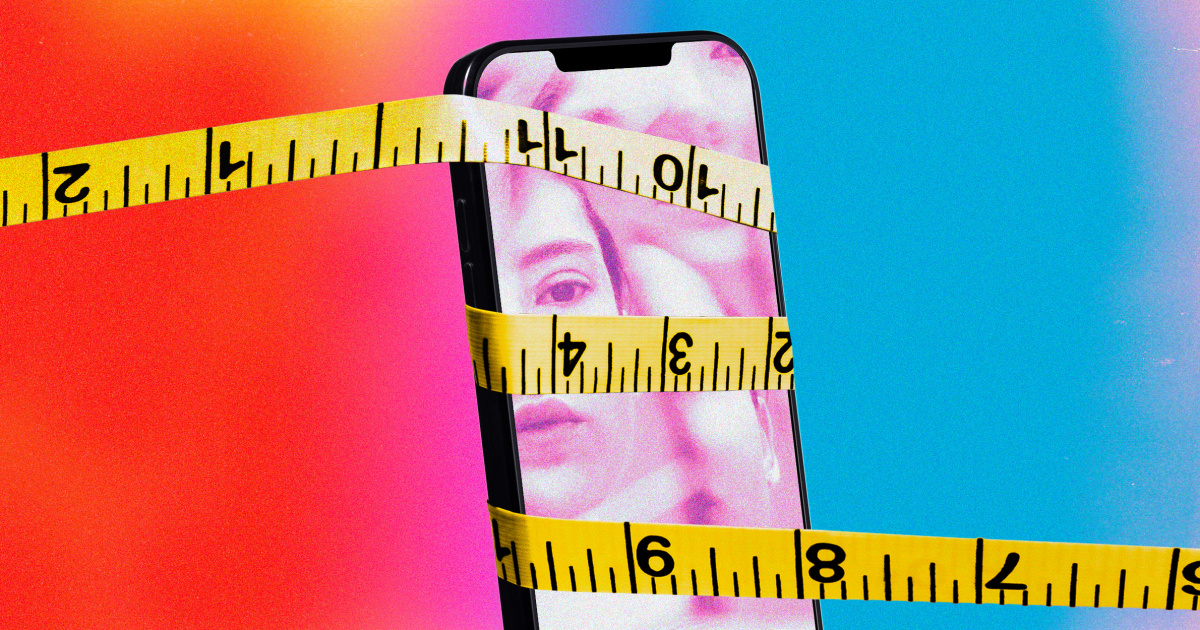A TikTok trend in which users purport to show «before and after» weight loss photos is being criticized by some as fatphobic.
Using the popular CapCut editing tool, trend participants have been applying an effect called «Big Face» to make their faces appear larger. They then export the modified image to TikTok for a comparison video: Big Face’s selfie versus the original selfie, tagged «How would I look if I lost 100 pounds.» In other words, «after» images are actually photos of what users currently look like.
The videos have been criticized by some online who say the trend mocks plus-size people and stigmatizes weight gain.
“People who are relatively fit make fun of fat people,” said Julia Barberi, 31, who posted a critique video about the trend on TikTok. «It’s a terrible filter. There are no positives. When we constantly see things about weight loss in the media, it just furthers the point that we are not enough as we are.»
The trend comes as some TikTok users continue to deal with body issues and eating disorders, an issue that has also been a problem on instagram and Snapchat. On TikTok, posts on For You Pages can surprise users with information about diet and exercise. In addition, a variety of inspirational lifestyle content, typically «get ready with me» series or «outfit of the day» videos, can be found with comments from users disparaging their own bodies or comparing themselves to other creators.
A few months ago, a TikTok «bloated» filter received a similar reaction. TikTok users posted videos with a double chin, before the video went on to reveal her true face. Other filters that change people’s faces or bodies have also sparked debate about how they might contribute to body dysphoria or self-esteem issues.
A TikTok spokesperson did not immediately respond to a request for comment.
TikTok user Dominique Navarro said she initially thought the «What would I look like if I lost 100 pounds» videos were meant to be positive.
«Like many people in the comments on these videos, I was impressed at first, went to the users’ profile and quickly realized that a filter was used to make me look fat,» said Navarro, who documents her loss process. of weight and analyzes the physical condition in your tik tok account. «Then I realized that a lot of the encouraging comments were just satire.»
The comments section of the videos participating in the recent trend have generated a wide range of reactions.
Some users, not realizing it was a joke, offered encouragement and shared anecdotes about their own weight loss journeys.
«You get this, I’m currently struggling too,» a commenter in response to a video. the creator of the video answered, “You have this too! It’s a trend but I hope you reach your goals <3.”
Others called out the videos for being deaf.
«This trend will never be fun, how can they not understand that?» An individual saying.
«It’s weird», another wrote. «Editing yourself to look a certain way so that your original self looks ‘better’ and you get compliments.»
Navarro said she thinks trends like this can be harmful to people struggling with weight or eating disorders.
“Most people have a phobia of fat, whether they realize it or not,” Navarro said. «People seem to believe that being fat is the worst thing you could be in the world, and as someone who’s been fat and within a healthy weight range, I know that’s not true.»
If you or someone you know is struggling with an eating disorder, contact the National Eating Disorders Association at 1-800-931-2237 during select hours, text NEDA to 741741 anytime in a crisis, or visit NEDA website.
Kalhan Rosenblatt contributed.

